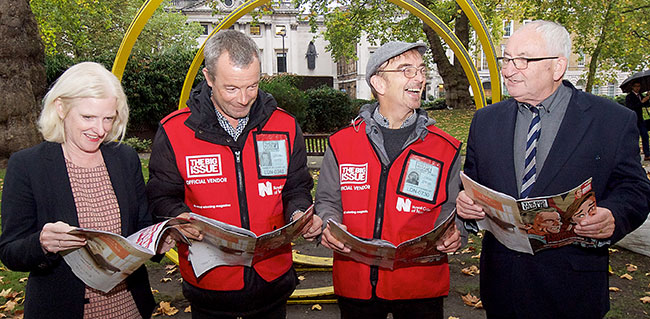A new emblem joins a well-known motto on the iconic vendor tabards this month. Two large hands will sit above a reminder of the magazine’s founding principle: ‘a hand up, not a handout’. These hands – my organisation’s symbol to represent the everyday work and values of our nurses – could not have found a more appropriate organisation with which to partner.
In nursing, we see individuals – people with complexities and life stories – not passive ‘patients’; care should not be done to somebody but instead with them. A nurse’s role focuses on maximising potential and enabling independence – which is why we believe supporting the work of The Big Issue is so relevant for us.
Multiple underlying mental and physical health issues contribute to someone sleeping rough
One of the earliest lessons I learned when training as a nurse in Manchester in the 1970s was about looking for causes and not just treating symptoms. What lies behind today’s sharp increases in homelessness and rough sleeping is as varied as it is complex. But it is fair to say poor health cuts across the two as a cause and effect of homelessness. The many roots must be addressed but we can be doing a great deal more as a society for the people who are already in an unimaginable situation.
Frequently, multiple underlying mental and physical health issues contribute to someone sleeping rough. The longer they do, the greater the risk that those problems will worsen. But the barriers to accessing healthcare – getting through the door of the NHS in some form – must not be underestimated.
These obstacles can mean health problems remain untreated until somebody reaches crisis point, with a cycle of repeated A&E visits and overnight stays that fail to deal with underlying issues. For somebody who is homeless, hospital trips like this occur four or five times more often than for the rest of the population.

Rough sleeping makes it harder to access longer-term health support too, such as mental health services. Specialist homelessness mental health teams have been subject to major funding cuts and even disappeared entirely while other services struggle to support people who face multiple complex problems. For others, not having a GP means there is nobody to make the necessary specialist referral.










